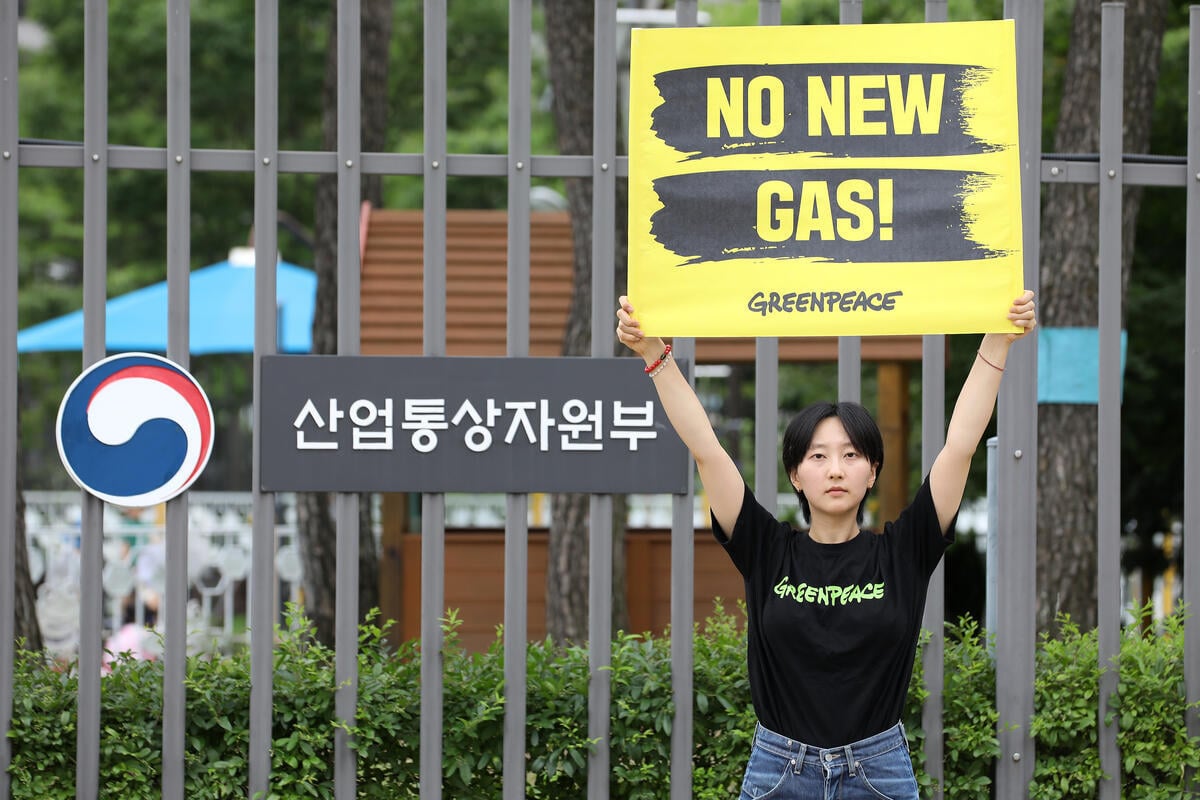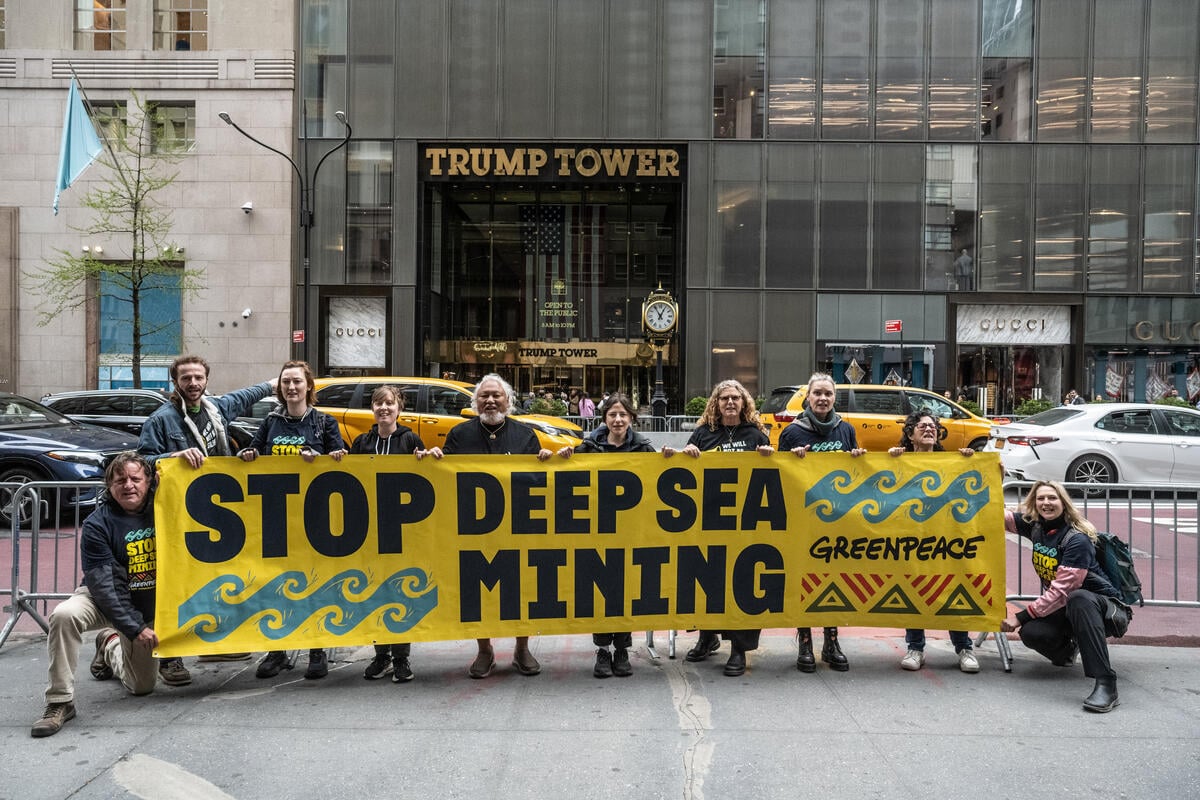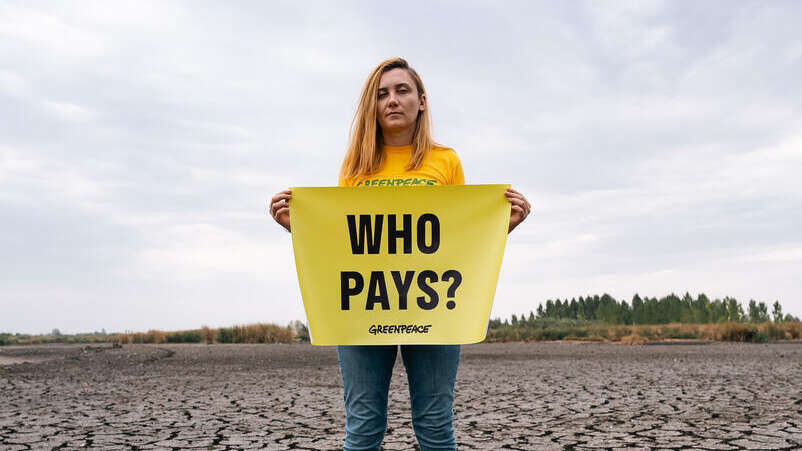The ocean is one of the most amazing wonders of our world. From its incredible biodiversity, to how it shapes the culture of millions of people on the planet, the ocean shows its strength and resilience. All life on Earth began in the ocean. It provides us with food, livelihood, and half of the oxygen in the atmosphere. It protects us, it protects our climate. The ocean is life.
But corporate greed is pushing our ocean to the limits. Industrial fishing, marine pollution, and climate change are threatening its biodiversity. Coastal communities and fishers are fighting corporations that put their profits over people’s lives and basic human rights. And a looming industry that wants to explore the depths of the ocean for minerals is putting the deep sea at risk even before we get the chance to understand it better.
Here are 5 ways you can take action and help protect the ocean, the rights of those who depend on it, and our future:
1. Tell world leaders to ratify the Global Ocean Treaty
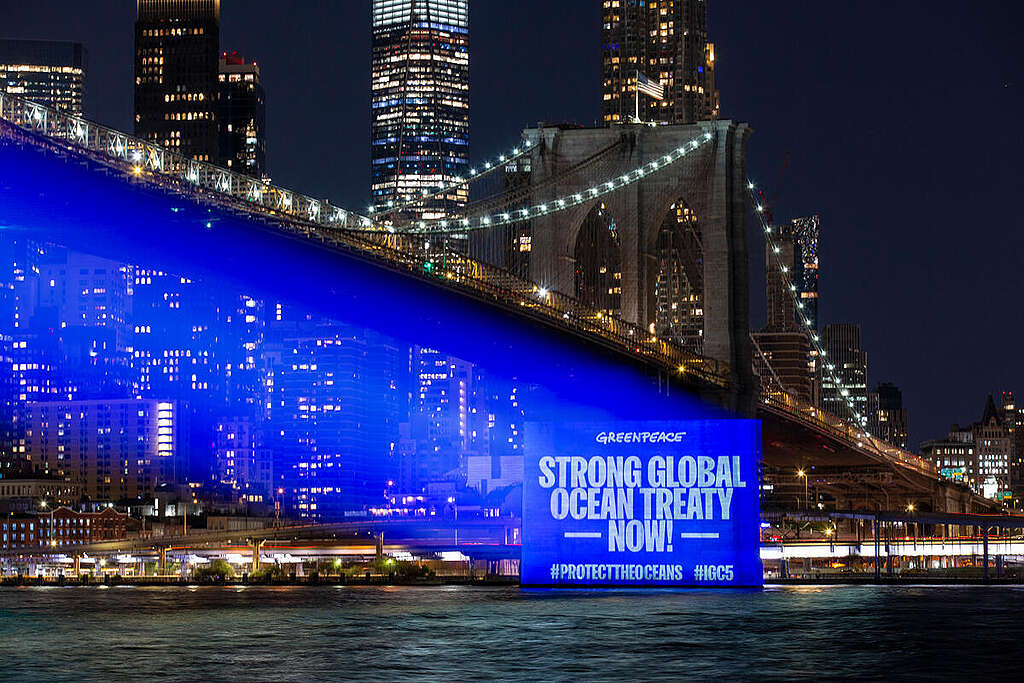
The adoption of the Global Ocean Treaty by the United Nations in June 2023 was a historical step toward ocean protection. The Treaty is a powerful tool to create vast protected areas where marine life can not only recover from industrial activity’s pressure and marine pollution, but also thrive. A healthy ocean is vital to protect the climate, and ensure the livelihoods of millions of people around the world — coastal communities, fishers, seafarers and everyone who depends on it.
Many nations and organisations, with the support of citizens like you, worked for decades to get where we are, but there is still work to do. The Global Ocean Treaty will only enter into force once at least 60 governments have written it into their national law. 90 countries have signed the Treaty, but only 6 have turned it into law so far. We have until June 2025 to reach the 60 countries target, otherwise the Ocean Treaty will not go into effect.
That’s why we need your support. Demand your government ratify the Global Ocean Treaty.
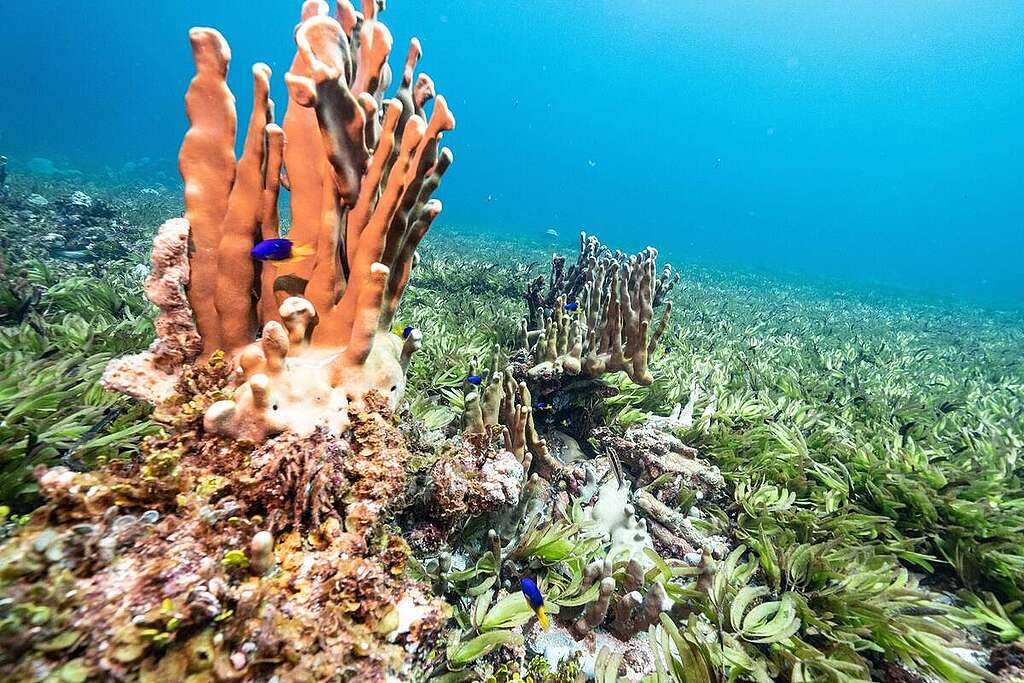
Add your name to call on leaders to create new ocean sanctuaries and protect our blue planet.
Add your name2. Stop the deep sea mining industry before it starts
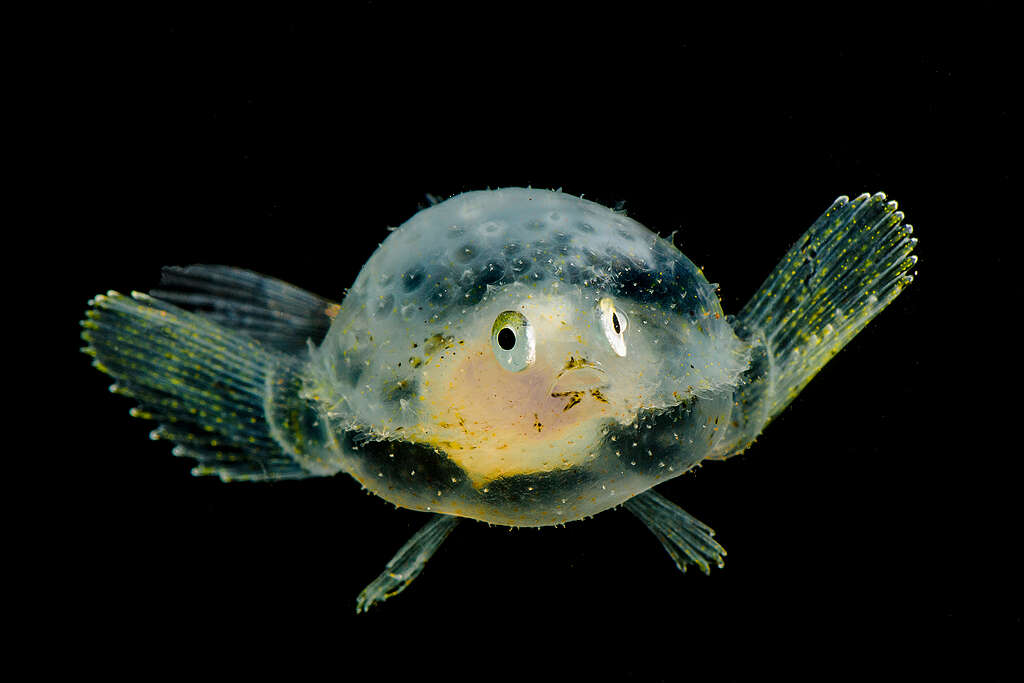
The deep ocean is one of Earth’s last untouched frontiers. It is home to mesmerising biodiversity, and is vital for the livelihoods and traditions of millions in the world, such as people from the Pacific. But the deep sea mining industry is a looming threat to this part of our planet that we understand so little about. Some countries and corporations are racing to extract metals and minerals like cobalt, nickel, manganese and copper from the seabed, with the excuse that those minerals are needed for a clean energy transition, and to profit off of it for military purposes.
Imagine being able to stop the fossil fuel industry before it began wreaking havoc on our planet. We have the chance to prevent the deep sea mining industry from taking giant machines weighing more than a blue whale to plunder the pristine ocean floor, and devastate everything. There is growing support from civil society and world leaders to prevent deep sea mining before it even starts.
Over 800,000 people around the world have joined the movement to increase political pressure against deep sea mining. We can’t afford the risk of destroying the ocean.
Sign the petition to stop deep sea mining before it starts.
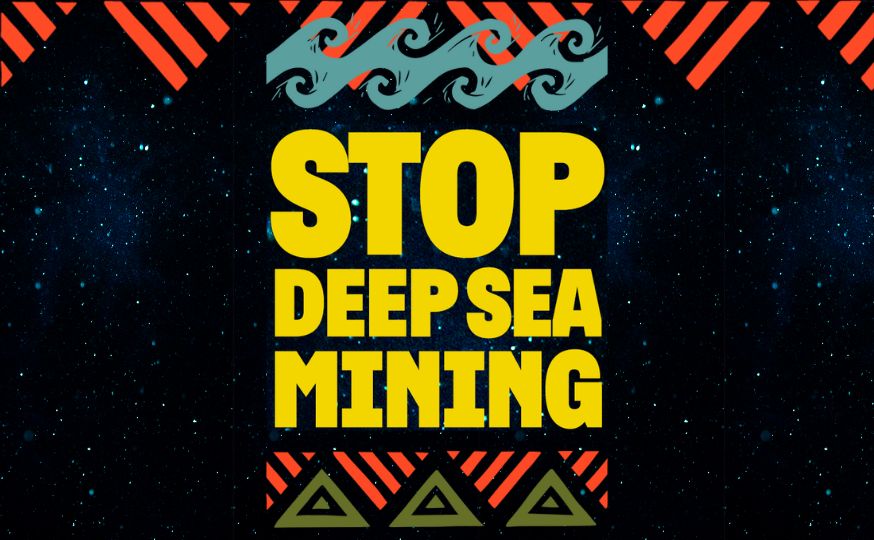
We need a global moratorium to stop the launch of this destructive new extractive industry. Join the Campaign.
Add your name3. Support Coastal Communities
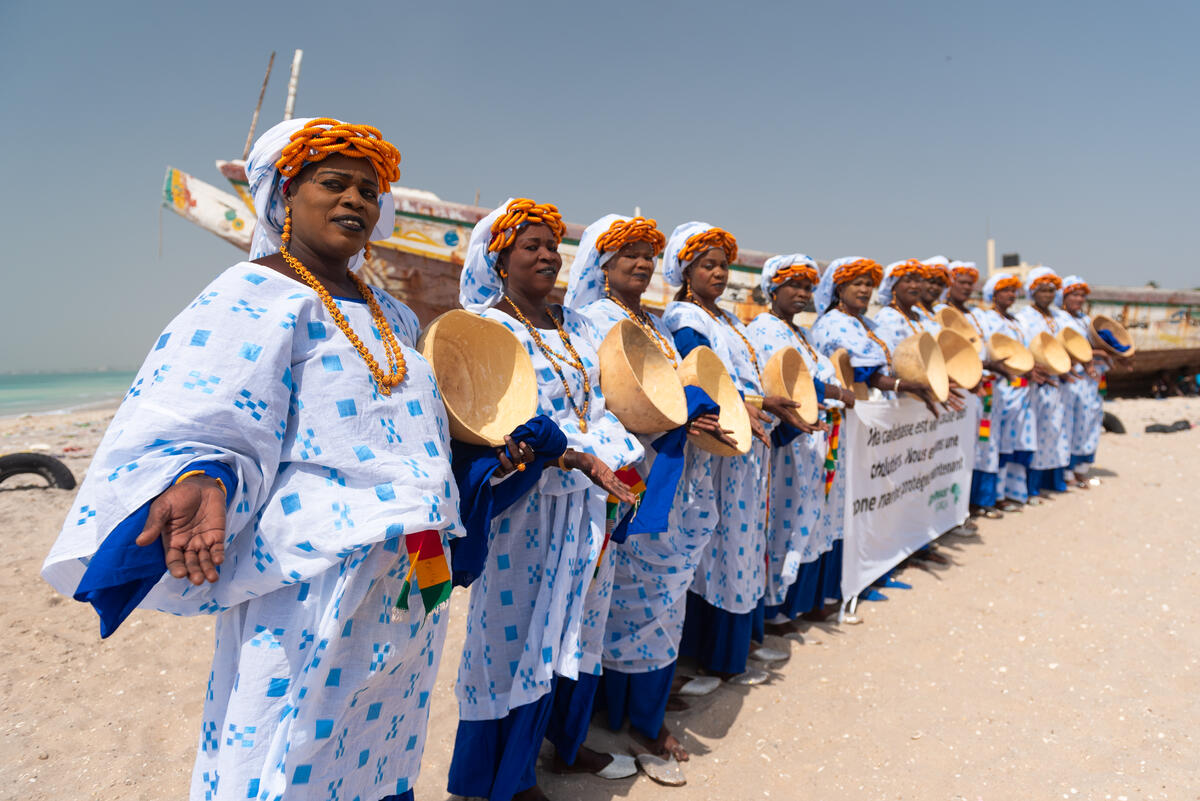
Millions of people are connected to the sea. The ocean doesn’t only provide food and oxygen to us, it is deeply embedded in the culture and ancestral wisdom of coastal communities and some Indigenous Peoples around the world. Yet, industrial fishing, marine pollution and the climate crisis have been directly impacting lives and traditions that have been shaped by the ocean for thousands of years.
From the people of Seychelles, restoring delicate mangrove forests, to the women of Senegal, who fought against industrial fishing during COVID-19, these communities not only depend on a healthy ocean, they have been protecting it for generations. But whether it is by industrial fishing, plastic pollution or oil exploration, their livelihoods keep being threatened. We must stand with Indigenous and coastal communities, seafarers and local fishers and help them protect their livelihoods and the ocean for everyone.
In Thailand, we are calling for an inclusive marine protected area co-managed by local communities and government agencies to address marine destruction affecting the climate and food security. Take action for Ocean Justice.
4. Turn off the tap on plastic pollution
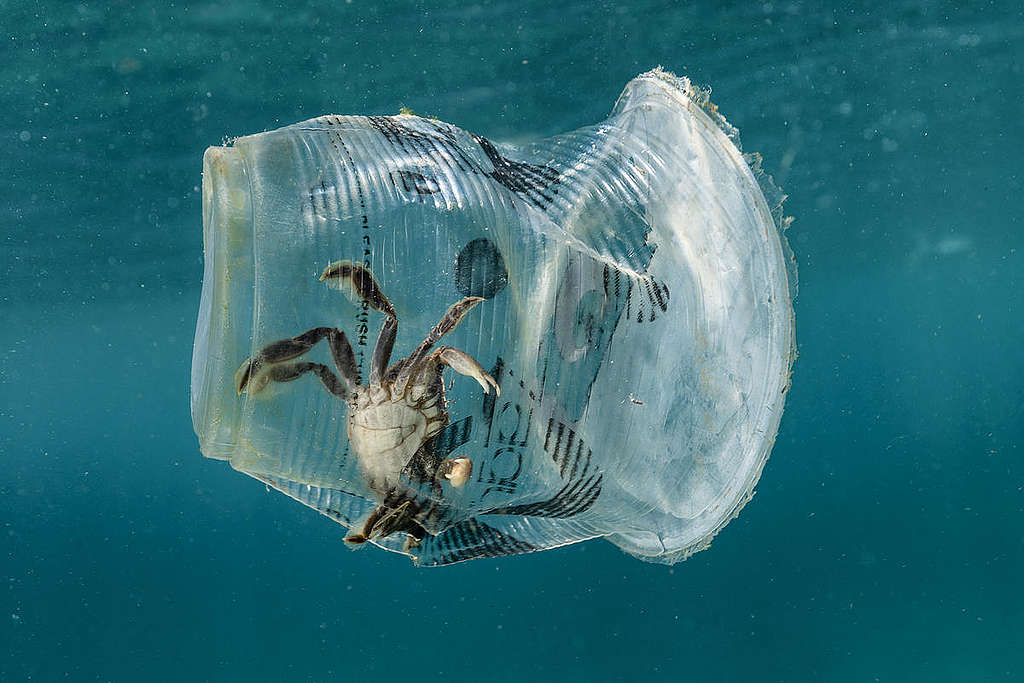
Plastic pollution is everywhere – it has flooded our planet, harming people’s health, accelerating social injustice, destroying biodiversity and fueling the climate crisis at each stage of its life cycle. From the Pacific Garbage Patch to the heartbreaking photos of marine fauna tangled in plastic, our ocean has been deeply impacted by the tremendous amount of plastic that is produced and thrown away every day.
While beach clean-ups and river sweeps are commendable efforts to remove plastic waste from the environment and reduce its impact on local biodiversity, such initiatives are false solutions. They address the symptoms of plastic pollution but do little to prevent its continuous influx into ecosystems. We cannot tackle the plastic pollution crisis without turning off the tap on plastic production.
This year, we have the chance to make history. World leaders are discussing a Global Plastics Treaty, an agreement that could help drastically cut plastic production, and turn the tide on plastic pollution.
We need a global movement demanding world leaders take meaningful action and agree to a Global Plastics Treaty. Join us.
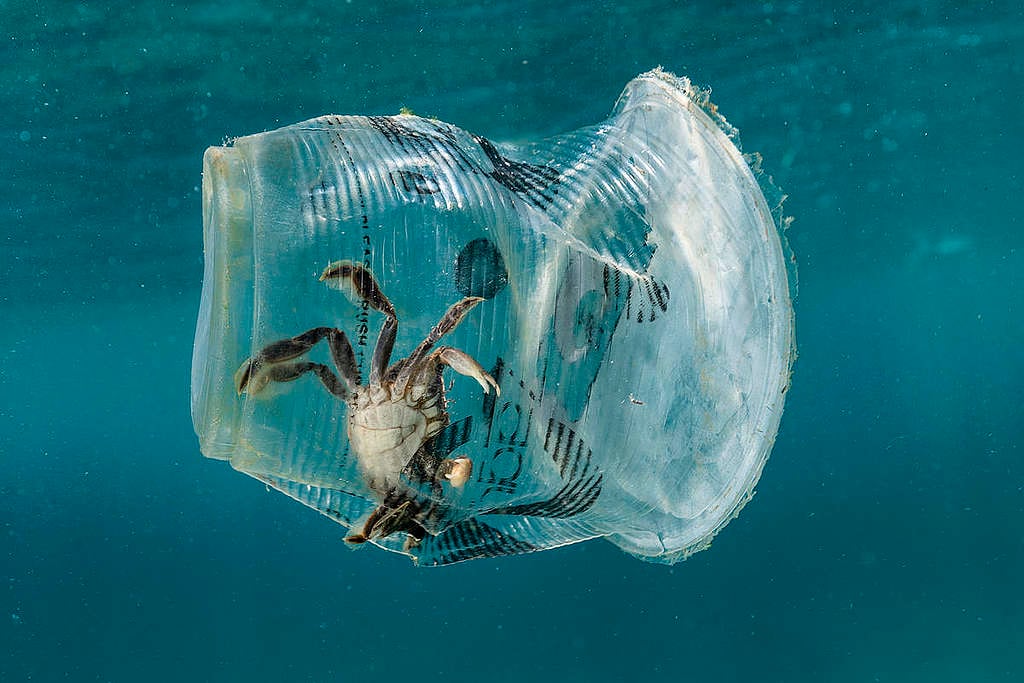
Ask world leaders to support a strong Global Plastic Treaty that addresses the whole life cycle of plastic.
Take action5. Stop the fossil fuel industry
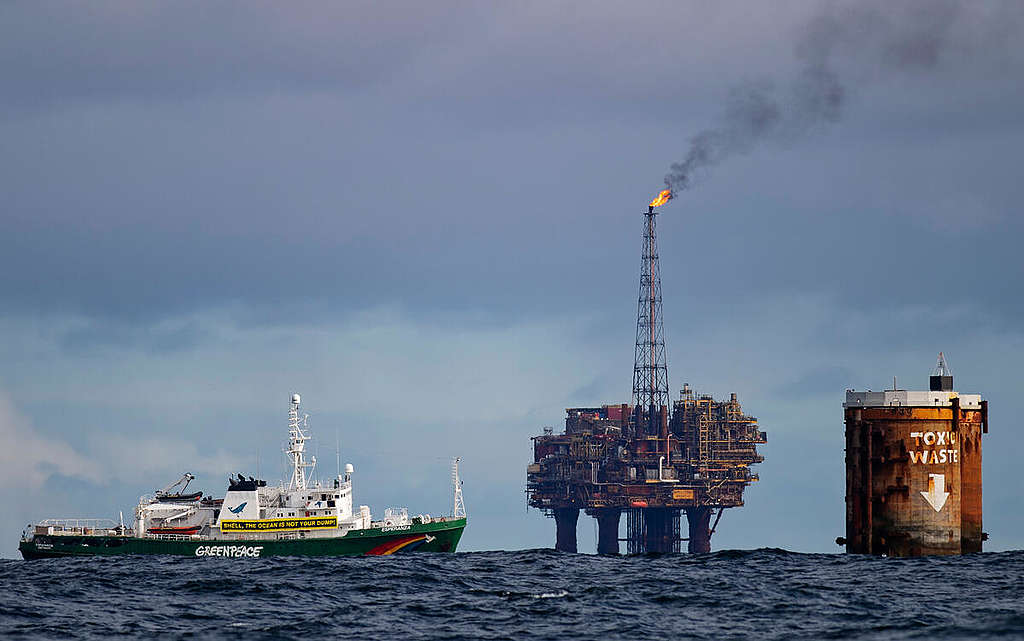
By now, we know that oil production is a threat to our climate and to biodiversity. Global temperatures keep rising both in the atmosphere and in the ocean. The Great Barrier Reef has seen unprecedented bleaching due to warmer waters, threatening all life that would usually thrive on it. Oil spills contaminate the ocean and leave a path of destruction behind, killing marine fauna and threatening the livelihoods of coastal communities and local fishers. Yet, the fossil fuel industry continues to expand, making record-breaking profits.
In Brazil, civil society has been fighting to protect the Amazon Coast for years from the threat of oil exploration in the region. Carbon Majors like TotalEnergies and BP have had their requests for oil drilling in the region denied by the country’s Environmental Agency, and a recent study by Greenpeace Brazil showed where the strong currents in the region could take oil when a spill happens.
The last thing the world needs is more oil exploration. International Oil companies are feeling the pressure, and we won’t back down. We are taking direct action to demand companies take responsibility for their role in causing the climate crisis. In a daring feat, 6 Greenpeace activists successfully scaled and occupied Shell’s Oil oil platform in the North Sea exposing their record-breaking profits at the cost of our future, and even International Courts are acknowledging the impacts emissions have in the ocean.
Take action: tell companies to stop drilling and start paying for the damage they have already caused to the planet.
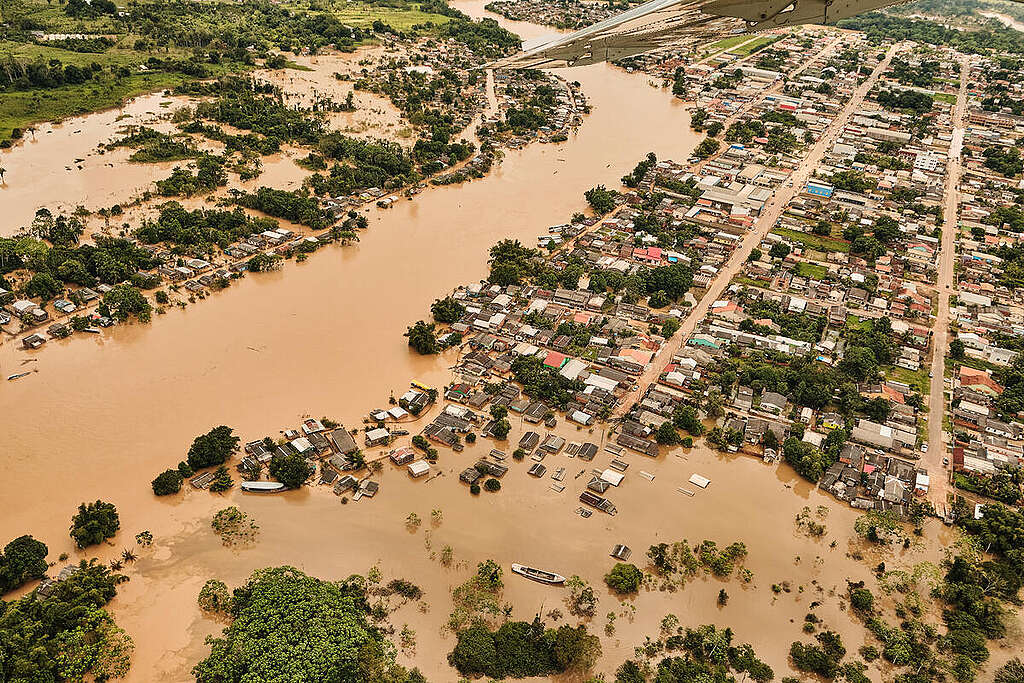
It’s time to make the polluters pay. Sign now to hold the oil and gas corporations accountable, and support a safe and fair future for all.
Add your name6. Be part of the movement
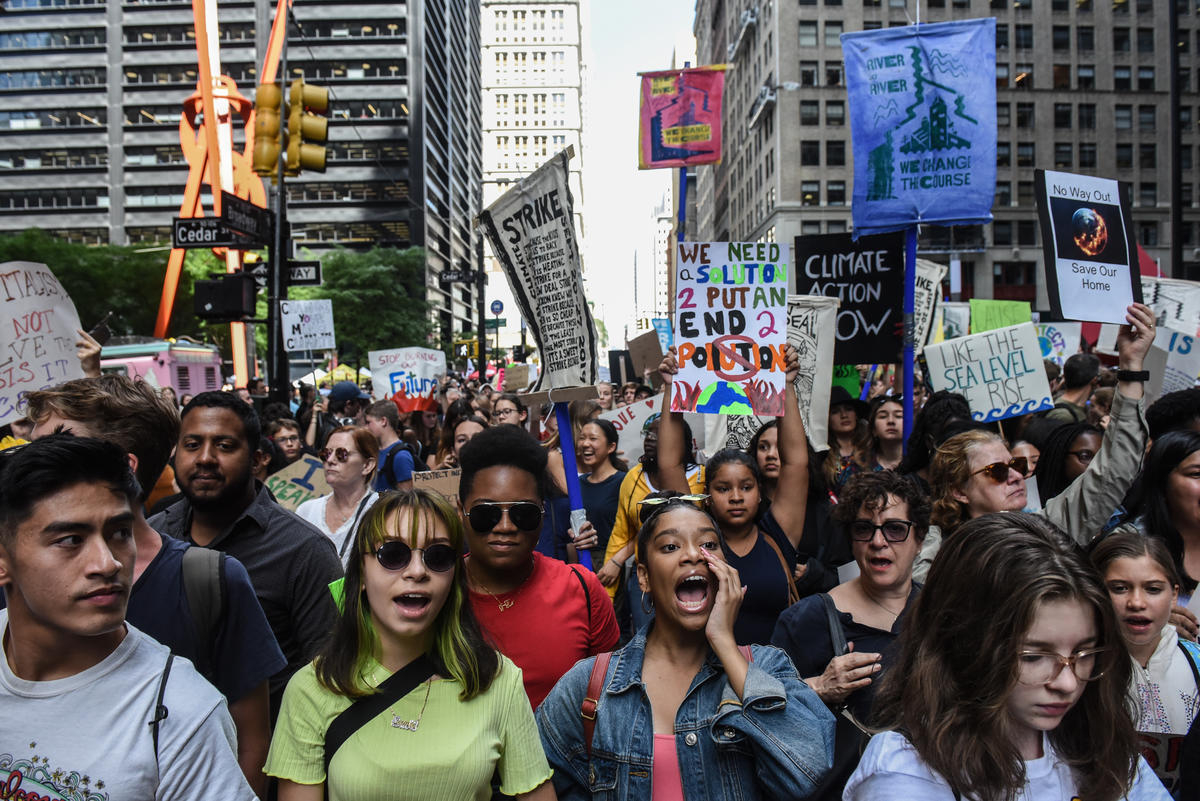
Whether it is by signing a petition or supporting your community locally, there are many ways you can help protect the oceans. You can take action by volunteering with us, or supporting us financially. Greenpeace is an independent organisation that does not take money from companies or governments. All of our work is funded by people like you, who love our planet and our future. Every action counts.
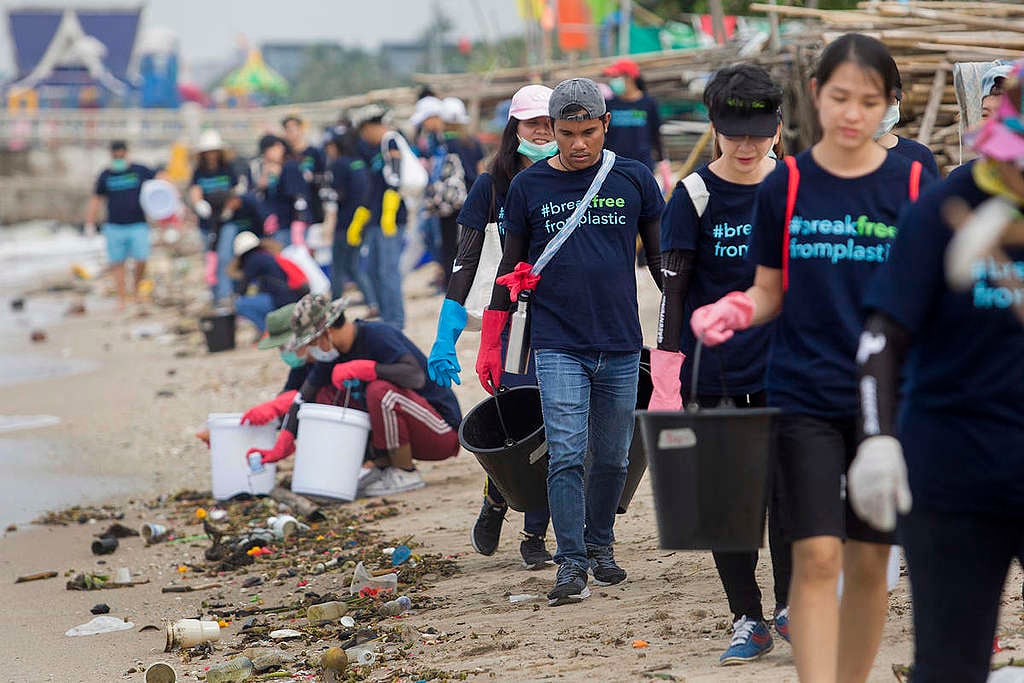
There are lots of ways to get involved with Greenpeace. Contact your local office to see if you can volunteer.
Join us
